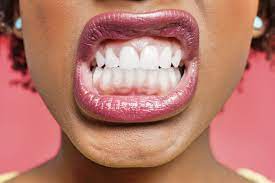If you've ever caught yourself clenching your jaw or wondered why your teeth feel sore in the morning, you're likely dealing with bruxism. Understanding the causes and effects of grinding your teeth is essential for protecting your oral health. Teeth Grinding Treatment, whether during the day or at night, can wear down your teeth, affect your bite, and even cause long-term complications if left untreated. Identifying the root cause helps you take early action and prevent serious damage.
What Causes Teeth Grinding?
There isn’t just one single cause of teeth grinding—it’s usually a combination of physical, emotional, and lifestyle-related factors. Knowing these can help you and your dental professional find the right solution.
- Stress and anxiety: Emotional stress is a leading contributor, especially at night.
- Sleep disorders: Conditions like sleep apnea or insomnia are closely linked to nighttime bruxism.
- Bite or alignment problems: Crooked teeth or a misaligned jaw may trigger unconscious grinding.
- Certain medications: Some antidepressants and neurological drugs list teeth grinding as a side effect.
- Lifestyle habits: Excessive caffeine, alcohol, smoking, or drug use can increase grinding risk.
- Personality traits: People who are highly competitive, aggressive, or hyperactive may be more prone to bruxism.
Pinpointing what’s causing your grinding behavior is key to stopping it effectively and safely.
Common Signs and Symptoms:
Many people are unaware they grind their teeth, especially if it occurs during sleep. However, there are a number of warning signs that may signal you’re grinding without realizing it.
- Jaw pain or tightness: Particularly in the morning or after long periods of focus.
- Tooth sensitivity: A result of worn enamel or exposed dentin from grinding.
- Headaches or facial pain: Often tension headaches around the temples or ears.
- Flattened or chipped teeth: Physical damage is often visible with regular grinding.
- Clicking or locking jaw: A possible indication of temporomandibular joint (TMJ) dysfunction.
- Disturbed sleep: You or your partner may hear grinding sounds during the night.
If you experience any of these symptoms regularly, it’s time to speak with a dental professional for an evaluation.
How Grinding Affects Your Oral and Overall Health?
Teeth grinding isn’t just annoying—it can have significant consequences for both your dental health and overall well-being. Left untreated, the effects can be long-lasting and costly to repair.
- Worn-down teeth: Constant pressure erodes enamel, making teeth more vulnerable to decay.
- Cracked or broken teeth: Severe grinding can lead to expensive restorations like crowns or root canals.
- Receding gums: Chronic clenching may contribute to gum damage and increased sensitivity.
- Jaw disorders: Overuse of jaw muscles can lead to TMJ pain, limited movement, and inflammation.
- Changes in bite: Altered tooth structure may impact the way your teeth come together.
- Sleep issues: Poor sleep quality due to grinding can cause fatigue, mood swings, and reduced productivity.
The effects can quickly escalate if ignored, highlighting the importance of early diagnosis and intervention.
Treatment and Prevention Strategies:
Fortunately, there are many effective treatments available to help manage or stop Teeth Grinding Treatment. The right approach depends on the cause, severity, and your individual needs.
- Nightguards or splints: Custom dental appliances worn during sleep can prevent damage.
- Stress relief techniques: Mindfulness, deep breathing, and therapy can help manage emotional triggers.
- Correcting bite issues: Orthodontic treatment or reshaping teeth may address physical causes.
- Reducing stimulants: Avoid caffeine, tobacco, and alcohol—especially before bed.
- Jaw exercises and massage: Strengthening and relaxing jaw muscles can relieve tension.
- Medication adjustment: In some cases, switching prescriptions may reduce grinding symptoms.
A dentist or healthcare provider can help tailor the right combination of treatments for long-term success.
When to Seek Professional Help?
If you're concerned about the causes and effects of grinding your teeth, don't delay scheduling a dental checkup. A professional evaluation can reveal whether bruxism is affecting your teeth, jaw, or sleep patterns.
- Persistent jaw or facial pain
- Frequent headaches or earaches
- Noticing wear or changes in your bite
- Grinding sounds reported by your partner
- Discomfort while eating or speaking
Early diagnosis and treatment can prevent permanent damage and improve your comfort and quality of life. Whether your grinding is stress-related, due to sleep issues, or connected to jaw misalignment, your dentist will help you restore balance and protect your smile for the future.





Comments